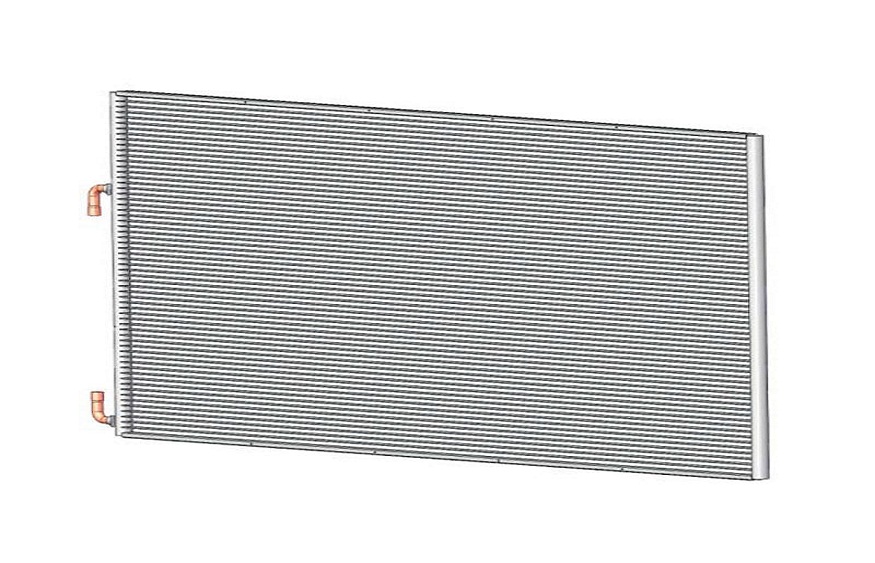Microchannel evaporators have become a cornerstone in the evolution of HVAC systems, offering enhanced efficiency and compact design. These innovative components utilize a unique heat exchanger technology that significantly improves thermal performance while minimizing refrigerant charge. The following sections delve into the integral role of microchannel evaporator, their technical specifications, and their advantageous applications across various sectors.
Technical Specifications of Microchannel Evaporators
Microchannel evaporators consist of a series of small, flat channels that facilitate the flow of refrigerant. This design results in increased surface area for heat exchange, enabling improved thermal transfer. The channels are typically fabricated from aluminum, providing superior corrosion resistance and lightweight characteristics.
Key Features
- Compact Design: The slim profile of microchannel evaporators allows for space-saving installations, making them ideal for tight environments.
- Enhanced Efficiency: With a greater heat transfer surface area, these evaporators operate at lower pressures, reducing energy consumption.
- Reduced Refrigerant Charge: The smaller volume of refrigerant required leads to a smaller environmental footprint and lower operational costs.
Applications in Commercial HVAC Systems
Microchannel evaporators are increasingly prevalent in commercial HVAC systems due to their efficiency and adaptability. They are particularly suited for:
- Chilled Water Systems: In large commercial buildings, microchannel evaporators can be integrated into chilled water systems, providing precise temperature control while minimizing energy use.
- Refrigeration Units: Supermarkets and cold storage facilities utilize these evaporators to maintain optimal temperatures for perishable goods, ensuring product longevity.
- Data Centers: These environments require precise cooling solutions. Microchannel evaporators help maintain the necessary conditions for critical infrastructure without excessive energy consumption.
Within these applications, the operational efficiency of a microchannel evaporator is frequently highlighted, showcasing their ability to lower operational costs significantly.
Residential Applications and Energy Efficiency
In residential settings, microchannel evaporators are gaining traction due to the rising demand for energy-efficient solutions. Homeowners are increasingly looking for systems that not only provide comfort but also have a minimal environmental impact.
Notable Uses
- Air Conditioning Systems: Incorporating microchannel technology into residential air conditioning units allows for better cooling performance while using less energy, aligning with modern sustainability goals.
- Heat Pumps: Microchannel evaporators are also utilized in heat pump systems, where they contribute to efficient heating and cooling cycles, further enhancing energy savings.
The move towards eco-friendly practices has made these systems attractive to both consumers and manufacturers, emphasizing energy conservation without sacrificing performance.
Future Trends and Innovations
The HVAC industry is on the brink of significant advancements, with microchannel evaporators at the forefront. As technology evolves, several trends are emerging:
- Integration with Smart Technologies: The incorporation of smart controls will allow for more precise operation and monitoring, further enhancing energy efficiency.
- Sustainable Refrigerants: As regulations tighten around refrigerant types, microchannel evaporators will adapt to utilize low-GWP (Global Warming Potential) refrigerants effectively.
- Modular Systems: The potential for modular designs using microchannel technology could lead to more flexible and customizable HVAC solutions for various applications.
The trajectory of microchannel evaporators points towards greater efficiency, flexibility, and sustainability, making them a pivotal component of future HVAC systems.
A Result
The incorporation of microchannel evaporators into HVAC applications marks a significant shift towards more efficient, compact, and environmentally friendly systems. Real-world applications across commercial and residential sectors demonstrate their versatility and effectiveness. As the industry advances, microchannel technology is poised to lead the way in innovative solutions that prioritize energy efficiency and performance. The ongoing development in this field suggests a promising future for both manufacturers and consumers in the quest for sustainable HVAC solutions.

